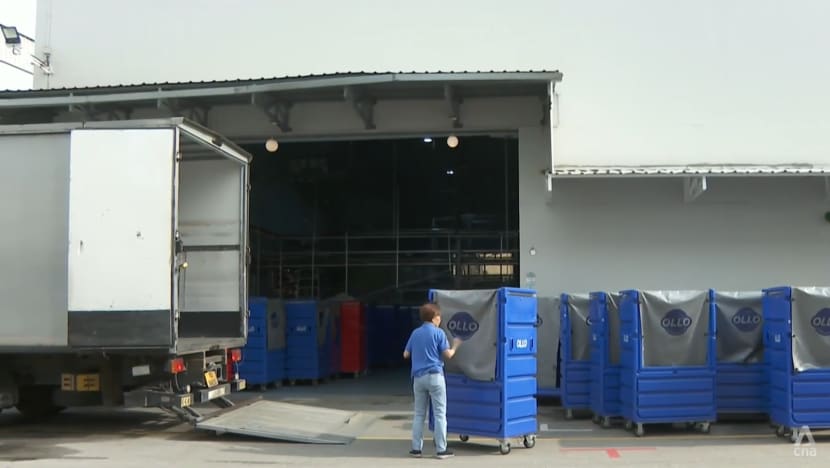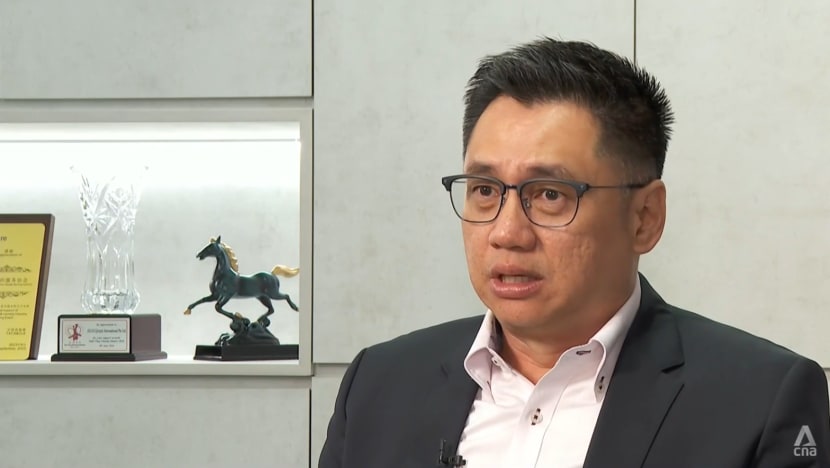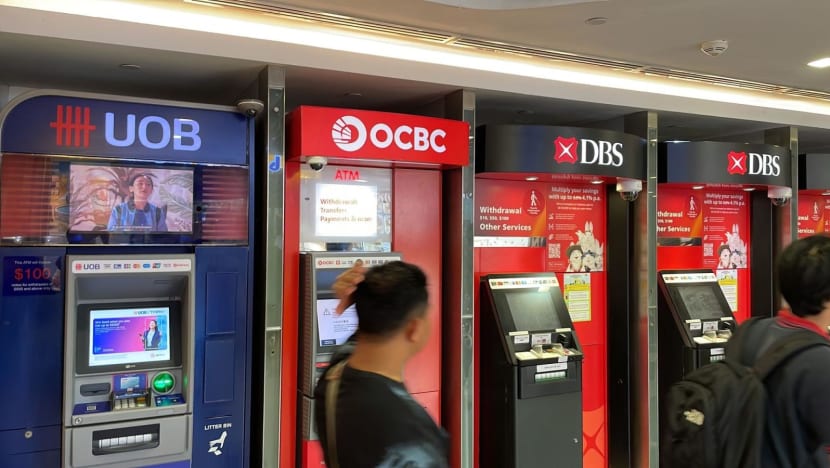Rise in sustainability-linked loans by banks to SMEs, as segment seeks help in decarbonisation efforts
Smaller firms are hesitant to invest in green initiatives as they are unsure if they can get a good return on investment, especially for infrastructure projects like installing solar panels and water recycling systems.

Singapore-born laundry service Ollo recently had to switch up its operations when its clientele shifted from individual consumers to other businesses during the COVID-19 pandemic.

This audio is generated by an AI tool.
SINGAPORE: There has been an increase in sustainability-linked loans taken by small- and medium-size enterprises (SMEs) in Singapore, as the segment ramps up its pursuit of green initiatives.
SMEs often face a capital or expertise ceiling in the race to net zero, which keeps them from embracing cleaner operations and accelerating their decarbonisation journeys.
They are also hesitant as they are unsure if they can get a good return on investment, especially for infrastructure projects like installing solar panels and water recycling systems.
RETURN ON INVESTMENT
While smaller green steps like switching plastic hangers to more recyclable ones are more manageable, bigger moves such as investing in an electric delivery fleet do not come cheap.
Singapore-born laundry service Ollo, for instance, has been around for eight years and recently had to switch up its operations when its clientele shifted from individual consumers to other businesses during the COVID-19 pandemic.
Its hospitality clients have become more selective about working with eco-conscious suppliers, Ollo CEO Alex Teo told CNA.
"Last year, we spent about 20 to 30 per cent of our expenditure on all these sustainability programmes. I think this year, we are expecting a lot more,” he said.
“Based on the projects that we are going to put in (place), I think we are expecting almost 80 to 90 per cent of the expenditure on all these sustainability initiatives."

Ollo is not alone in approaching such a colossal investment.
Many other SMEs are adopting a wait-and-see approach due to large upfront costs, especially for infrastructure projects, according to Association of Small and Medium Enterprises (ASME) president Ang Yuit.
The decision is made even more complex, with considerations such as complicated certification processes and uncertain long-term returns, he said.
Mr Ang explained that SMEs have to think about profits and losses in the immediate and shorter term, and are especially sensitive towards the costs involved.
"Without a clear revenue or profit that can be had, if we move in this direction, for many, actually going into the adopting greener technology may require an immediate increase in capital expenditure, or maybe even operating expense, because you're changing the way you're operating,” he said.
SUSTAINABLE FINANCING
Sustainable financing is one way banks are helping SMEs overcome cost barriers.
Some banks even go beyond issuing loans, to help SMEs achieve certification targets and navigate the complex transition landscape.
OCBC’s head of global commercial banking Linus Goh told CNA that the biggest challenge most SMEs face in going green is a shortage of resources and time.

“What we have done is to work with them (to) make it a lot simpler, (and) create a framework that takes some of the hassle out of the equation (and) breaks it down into simple questions that they can deal with,” he explained.
The bank’s uptake of sustainability-linked loans has jumped from just one SME in 2022, to 24 SMEs last year.
Across the banking sector, the uptick is slowly but surely coming along.
A DBS spokesperson told CNA that while a majority of the bank’s financing up until last year went to large and mid-sized corporations, there has been an increase in interest from SMEs in green, sustainable and transition loans.
As at end-2023, the bank has extended more than S$72 billion (US$53 billion) in sustainable financing to corporations of all sizes, including SMEs, the spokesperson said.
“This trend is fuelled by a growing recognition among businesses of the importance of integrating sustainable practices into their operations,” the spokesperson said.
Meanwhile, about 54 per cent of UOB’s total sustainable financing last year went to local SMEs.
“As at end-2023, UOB extended a total of about S$6.1 billion in sustainable financing – close to 77 per cent increase year-on-year – to more than 400 SMEs,” said Ms Lim Lay Wah, group head of UOB’s Sector Solutions Group and Financial Institutions Group.
“In particular, we saw a five times increase in sustainability-linked loans compared with 2022, demonstrating the increased demand from SMEs and their growing focus on sustainable business models.”
Such loans are important and timely for SMEs like Ollo, which are facing current economic pressures from rising energy costs and inflation.
"I think it's a good initiative by the financing institutes, that they are coming up with all these initiatives to help SMEs to be more focused on putting in the correct resources onto the green initiatives,” Ollo’s Mr Teo said.
“Compared to current interest rates, I think it's also a good (and) significant saving."
There are also grants from Enterprise Singapore that help such firms defray other energy and manpower costs, as well as to train and retrain a green workforce.


















